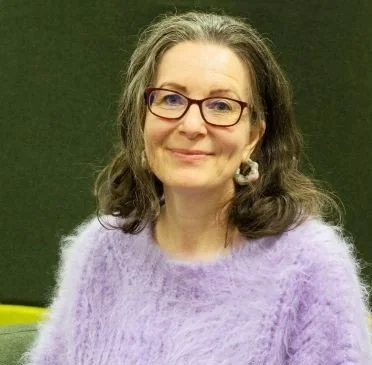How can big transport projects nurture the skills needed for the green transition?
Clare Wildfire, Global Cities Lead, Mott MacDonald
Interchange next week in Manchester will include much about the challenges and opportunities of building Northern Powerhouse Rail and other major projects in the North West and further afield. A key element, which must not be overlooked, is the implications for skills and employment, says Mott MacDonald’s Global Cities Lead, Clare Wildfire
Big schemes such as Northern Powerhouse Rail will not be delivered if they cannot tap into a pool of suitably experienced and qualified people; and they won’t live up to their promise for the North if they can’t do so locally.
We also need an eye on the fact that investment in new infrastructure can and should have a galvanising effect on education and training, leaving a legacy of future-facing skills to confront new challenges such as the green transition.
The problem isn’t new. Shortages of UK engineers have been widely reported for decades, but it’s fair to say that the need for their capabilities has never been greater – the Green Jobs Taskforce reported in 2021 that around 500,000 new jobs would be needed in this country to meet the Net Zero challenge in sectors such as renewable energy, nuclear and transport.
This is not just about engineers. To create sustainable, inclusive and cost-effective programmes that will deliver lasting value will require an increase in the availability of a myriad of other skills such as project managers, cost and value specialists, data analysts, decarbonisation experts and many more, as well as more traditionally creative roles such as architecture, public engagement, marketing and communications.
Leaving a legacy of people with valuable knowledge and experience for the green transition is a game-changing opportunity
Ensuring that big infrastructure schemes can both access the right sort of skilled labour and leave a legacy of people with valuable knowledge and experience for the green transition is a game-changing opportunity. Realising it will require a whole systems approach, bringing together a nexus of education bodies, local and regional government and private employers working collaboratively to deliver powerful and long-lasting outcomes.
By enabling critical stakeholders to contribute their diverse perspectives on the challenge, all parties improve their appreciation of the skills system within which they operate and see more clearly their own role in supporting the change needed. Through sharing of success factors, risk levers and motivations, the opportunities for collaboration and points of leverage become clearer, shedding light on critical topics such as:
- The support local learning providers need to fast-track the future-facing skills that employers are seeking.
- How to enable closer local ties between employers and learning providers to improve efficacy in the system.
- Creative ways to reduce barriers. Are these just time and money, or are there other ways to exchange resources such as learning spaces or physical access?
Clare Wildfire is Mott MacDonald’s Global Cities Lead. Clare will be convening a roundtable conversation on the second day of Interchange to explore further how transport investment can catalyse a region skills renaissance in the North. This includes how it can be used to deliver a legacy of skills which not only meet new challenges within the green transition, but also provide strong institutional capacity to keep developing new skills for the region. You’ll find further details on the round table programme running on the 28 February, the second day of Interchange, including how to apply for a place here www.interchange-uk.com
Interchange is at Manchester Central on 27/28 February. In addition to the Interchange progamme and the round table sessions, it comprises a series of co-located events including the ITS UK annual conference, the STB Conference and TIP Live. A single FREE registration gives access to all activities across the two days. You’ll find more information here including how to register


